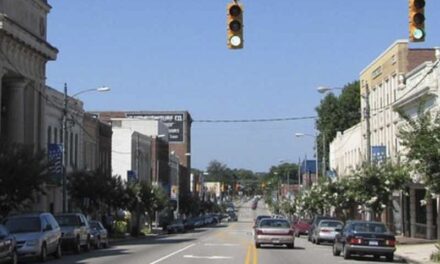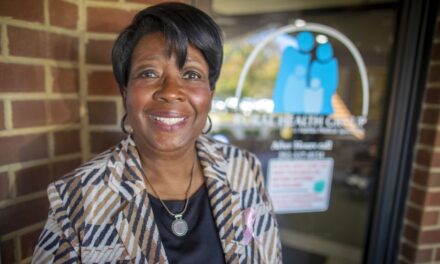Conference Focuses on Leadership in Times of Change

Jermaine Davis, Ph.D., founder and CEO of Jermaine M. Davis Seminars & Workshops, Inc., delivered the conference’s keynote address.
During a year that has required changes in how we work, gather with friends and family, and educate our children, the Grassroots Leadership Conference (GLC) brought a message of inspiration and empowerment to community leaders and volunteers.
Offered annually by Cooperative Extension at North Carolina A&T State University in collaboration with the Extension at A&T Strategic Planning Council, the conference brought together about 150 grassroots leaders to discuss issues of equity that affect their communities and to strategize on equitable solutions to community problems. GLC 2020, with the theme of Creating Equitable Solutions for Stronger Communities, was held virtually on Oct. 22 and included attendees from across North Carolina, including local government officials, leaders of nonprofits and community groups, volunteers, and Extension staff.
“Identifying strategies aimed at solving community issues has always been the focus of this conference, and that was paramount this year,” said Michelle Eley, Ph.D., community and economic development specialist with Extension at N.C. A&T. “With COVID and everything else we’ve been facing this year, people were feeling stressed and were kind of making it day-by-day. Our focus was to engage with them and identify skills and strategies that can help them make a meaningful impact in their communities.”
The conference began with a keynote address by Jermaine Davis, Ph.D., founder and CEO of Jermaine M. Davis Seminars & Workshops, Inc., and a professor of communication studies and organizational leadership at Century College and St. Catherine University in Minnesota. Davis’ message was designed to inspire community leaders with practical tips on how to thrive and contribute to positive change during times of unprecedented unpredictability.
Davis defined leadership as “the ability to inspire others to take positive action,” and called on participants to resist groupthink and develop a “growth mindset.” People with a growth mindset, he said, see failure as an opportunity to learn and grow. They see feedback as constructive; they like to get out of their comfort zones and try new approaches, and they are inspired by the success of others. His message was well received by conference participants.
“Dr. Davis has an exceptional ability to connect with his audience—even over the internet,” said one participant in a post-conference evaluation. “I appreciate how he demonstrated that his message could be applied in our professional and personal lives.”
The conference also offered breakout sessions where attendees had the chance to dive deeper into topics of interest. Breakout sessions explored broad topics, such as different styles for coping with change, and opportunities for minority youth to develop leadership skills and explore career interests. They also addressed some of the most central issues affecting minority and underserved communities, such as health inequities made even more critical by the COVID-19 pandemic, and food equity and the challenge of eliminating food deserts. Another breakout session introduced the program Coming Together for Racial Understanding, a national initiative to improve race relationsuses a “dialogue to action” approach to building racial understanding and helping communities address racial equity. The conference concluded with a capstone session, led by Davis, that pulled together the discussions and offered ideas for turning the day’s information into action.
The overall message of the GLC was that even in uncertain times, grassroots leaders can adapt and find ways to apply new knowledge to make a difference in their communities and in their lives, said Eley.
“It’s always gratifying to put time and effort into the GLC and have it well received, and it was very well received,” she said. “We gave people something that they needed and they walked away with ideas and inspiration they can share and use in their home communities.”


